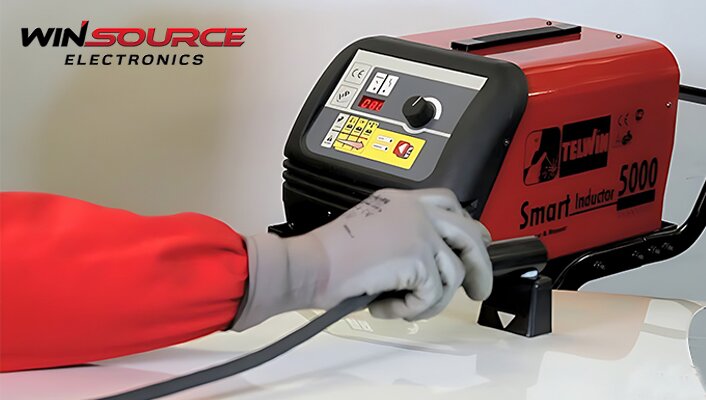
Table of Contents
ToggleIntroduction
In the ever-evolving world of electronics, components such as inductors have traditionally played a passive role, providing resistance to changes in electrical current. However, as technology continues to advance, electronic components are becoming smarter and more versatile, enabling real-time sensing and response. This article explores the concept of “smart inductors,” a breakthrough development in electronic component technology, and its applications in a wide range of industries.
The evolution of passive components
Inductors are essential passive components in circuits, mainly used to store energy in the form of magnetic fields and resist changes in current. They are commonly found in power supplies, filters, and oscillators, and their function has traditionally been static.
However, the need for more dynamic and responsive electronics has led to the development of smart inductors, components that can sense and adapt in real time, providing numerous advantages in a variety of applications.
Key Benefits of Smart Inductors
Real-time sensing: Smart inductors are equipped with sensors and intelligent control systems that can monitor various parameters such as current, voltage, temperature, and magnetic field strength. This real-time sensing capability enables components to dynamically adjust their behavior.
Adaptive Reactance: Unlike traditional inductors, which have a fixed inductance value, smart inductors can dynamically change their reactance based on the input signal and desired output. This adaptability makes them ideal for applications where impedance matching, signal filtering and power management are critical.
Improved efficiency: Smart inductors can significantly increase the efficiency of electronic systems by optimizing energy transfer and reducing power losses. Their ability to adapt to changing conditions ensures the system operates at peak efficiency, thereby reducing energy consumption.
Applications of smart inductors
Wireless charging: Smart inductors are revolutionizing wireless charging technology by adjusting inductance in real time to ensure efficient power transfer. This is especially important in fast charging scenarios and devices with different power requirements.
Power Electronics: In power supply and voltage regulation circuits, smart inductors can adjust their inductance to stabilize the output voltage even if the input voltage or load conditions change. This is critical for applications such as electric vehicles and renewable energy systems.
RF and communications systems: Smart inductors are valuable in radio frequency (RF) circuits because they can adjust their impedance to match the frequency of the input signal. This enhances signal quality, reduces reflections, and improves overall system performance.
Internet of Things and Sensor Networks: In the Internet of Things (IoT) and sensor network space, smart inductors with real-time sensing capabilities play a key role in managing power consumption, signal quality and communication range, ultimately extending battery life – Power Supply equipment.
Automotive Industry: The automotive industry benefits from smart inductors in engine management, electric power steering and advanced driver assistance systems. These components can adjust their characteristics to improve fuel efficiency and performance.
In conclusion
The emergence of smart inductors represents a major advancement in electronic component technology. Equipped with real-time sensing and adaptive capabilities, these versatile components are transforming numerous industries. From wireless charging to power electronics, communications systems, IoT devices and automotive applications, smart inductors are improving efficiency, reducing energy consumption and enhancing overall performance.
As technology continues to advance, we can expect more innovative uses for smart inductors, further cementing their status as an essential component in the development of smart, responsive electronic systems. With smart inductors, electronics are not only evolving; They are adapting and responding in real time to meet the needs of an increasingly dynamic world.

COMMENTS